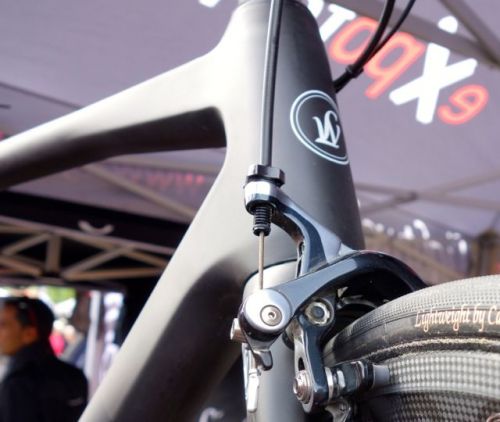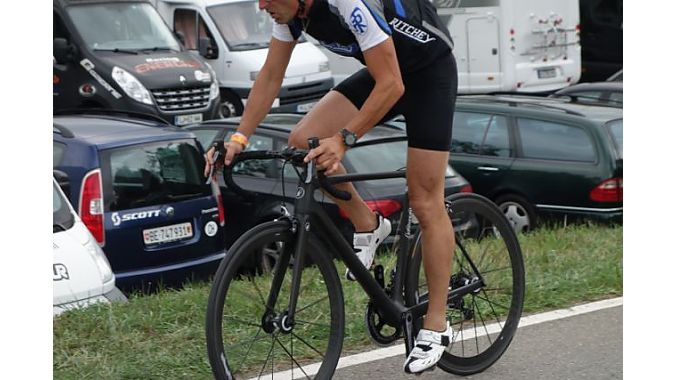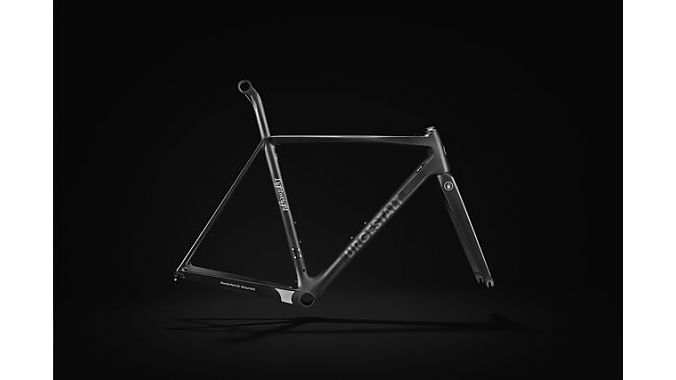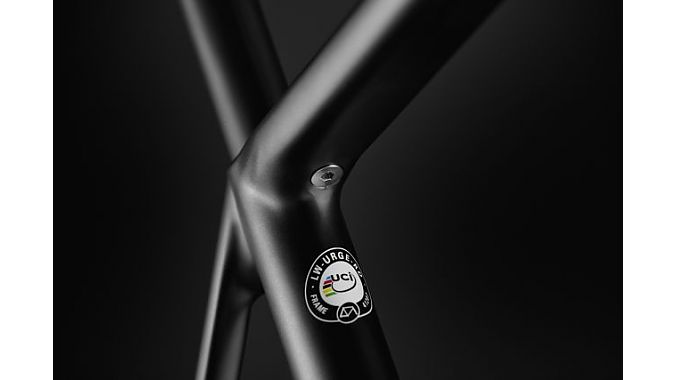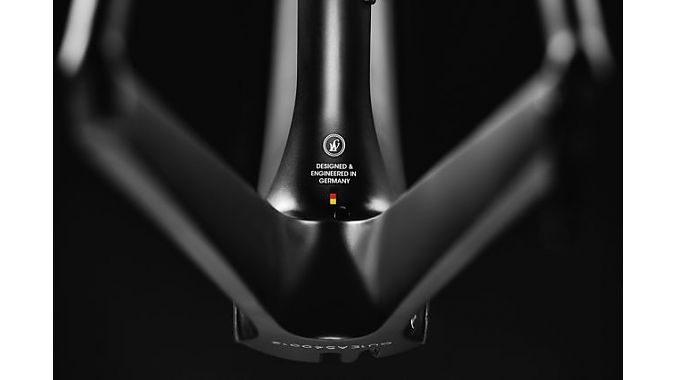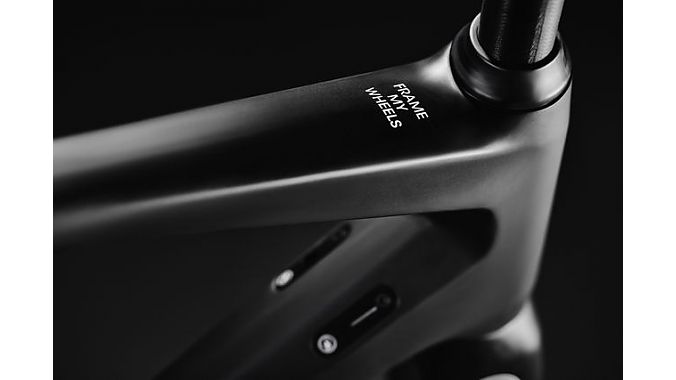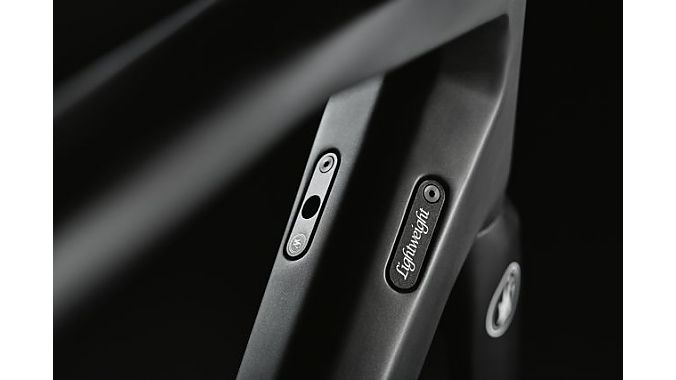ARGENBÜHL, Germany (BRAIN) — At the Eurobike Demo Day here Tuesday, fans of Lightweight were thrilled to see the wheelmaker's first real foray into the frameset market. And fans, competitors and observers were mildly surprised at exactly how the company is executing its frame project.
First, for those not totally familiar with Lightweight, a few facts about its wheels:
- They are extremely light and aerodynamic. Some sets weigh 930 grams per pair, and feature deep section rim profiles and tensioned flat carbon spokes, assembled in a process that the company keeps largely under wraps. Lightweight's lightest wheels are arguably in a weight category of their own.
- They are extremely expensive. Wheels retail from $4,500 to $7,300 a pair. Again — Lightweight wheels are in price category of their own.
- They are extremely coveted. Even Tour de France winners (some now dethroned) and world champions have been known to pay for Lightweight wheels and used them in special events in place of wheels they were paid to ride.
Unlike Lightweight wheels, the Urgestalt's price is competitive with some other high-end frames, and a bargain compared to one notable competitor.
Two more factoids: Lightweight's parent company is Carbon Sports, which in turn is part of a larger company that produces carbon fiber aerospace devices. And Lightweight just happens to be based in Freidrichshafen, less than a kilometer from the convention center that hosts this week's Eurobike expo. The bike division employes about 50 and all its wheels are made there.
Now that you are up to speed on Lightweight's wheels, a few points about the company's new frame, called the Urgestalt.
- It will be coveted. It shares the same clear-coated black carbon finish and understated graphics as the company's wheels. It looks light, fast and expensive. European dealers were lining up Tuesday to test ride the small handful of bikes available.
- It is superlight — but not quite in a category of its own, weight-wise. A size 54 frame weighs 790 grams. An uncut fork weighs 318 grams. That's extremely light, but there are other frames and framesets on the market — from Scott Sports, Guru, Cervelo and others — just as lighter or lighter. Of course the frame, fork and seatpost (combined weight 1,340 grams) matched with Lightweight's wheels can easily produce a bike weighing as little as 5.9 kilos (13 pounds). And the wheels and frame look great together.
- It's expensive — but unlike Lightweight wheels, the Urgestalt's price is competitive with some other high-end frames, and a bargain compared to one notable competitor. The frame, fork and seatpost will retail for about $6,699. That's in the neighborhood of custom frames from Calfee, Serotta and Pegoretti, for example and significantly less than the $10,000 Cervelo Rca, a 670-gram limited edition Cervelo made in California.
- Most surprising: the Urgestalt is made in Asia (a company spokesman declined to say which country).
Make no mistake — the Urgestalt's specs, price and region of origin are only surprising when viewed in relation to Lightweight's uncompromising wheel program. It is a lust-worthy frameset that is likely to be well received at the highest end of the road bike market.
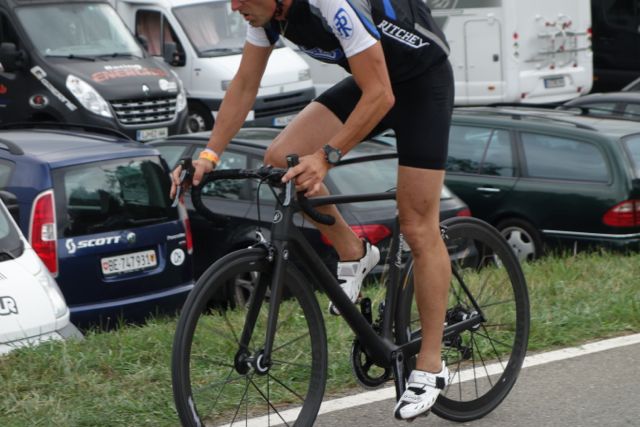
But the frame had some competitors and former competitors scratching their heads at the Demo on Tuesday. Why is Lightweight making the frame in Asia, they asked. And why is the frame's weight, price and specs not as stratospheric as its wheels?
Company spokesman Frank Jeniche said that if Lightweight had made the frame in Germany, it would have cost $10,000-$12,000 and might still not be profitable. Going to Asia allowed Lightweight to take advantage of the frame building experience of its vendor there, combined with Carbon Sport's cutting edge experience with carbon fiber construction.
Each frameset is inspected thoroughly before leaving the Asian factory, with test and QC results recorded and matched with each frame. Then the frames are shipped to Friedrichshafen, where they are inspected again before being shipped to customers.
As for the weight, Jeniche said Lightweight has the technology to make a frame of less than 550 grams that would ride well and meet relevant standards, but would be impractical.
"The tubes would be so thin that if the bike fell over against something, or you put it in the back of your car without care, you could ruin it," he said.
Jeniche also pointed out that this is not Lightweight's first frame. The company showed a V-beam-style time trial/triathlon bike at the 2003 trade shows. But the industry was more interested in Lightweight's wheels, so the company waited to develop the frame. And in the meantime, the frame design was outlawed by the UCI, so Lightweight started from scratch when it began developing the Urgestalt three years ago.

